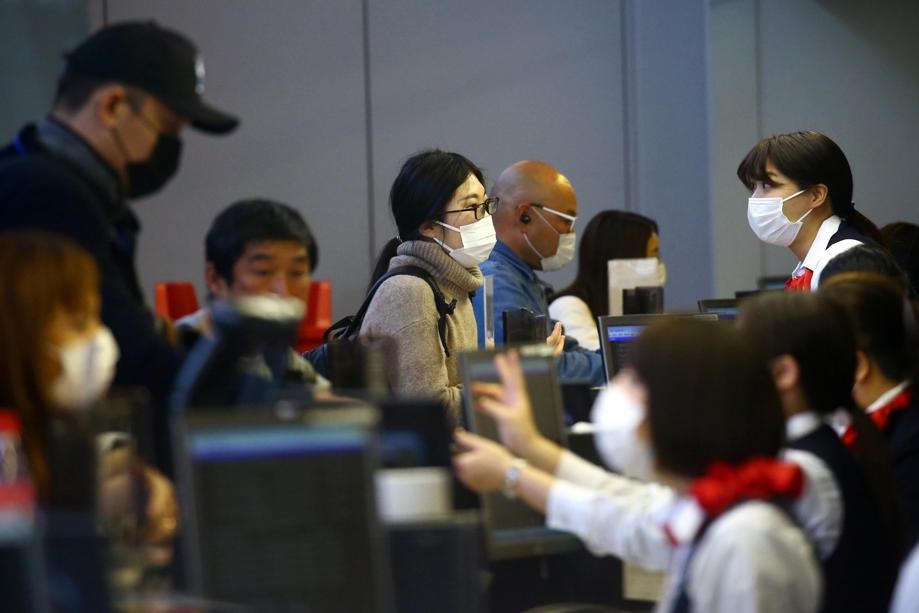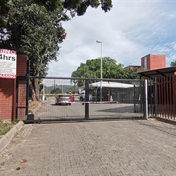
Societies are tested in times of trials and tribulations, and the Covid-19 coronavirus sets the scene for the evaluation of the very fibre of society.
During time of crisis we learn, adjust, and try to cope as we react to the reality of a looming threat. Unfortunately for many, the outbreak of Covid-19 brought with it another deadly disease – human rights violations, scapegoating, blame-shifting, bad mouthing in the press, fake news, political games and strategic manoeuvres advancing economic alliances – the very things sensational stories are made of.
Covid-19 has its origin in the city of Wuhan in China. Since it broke out in December it has led to increased prejudice, discrimination, xenophobia, violence and racism against Chinese people, but also people of East Asian and Southeast Asian descent and appearance.
Most cases having been reported in Europe and Northern America.
In some countries like South Korea minority religious groups have also come under fire and suffered injustice due to the proliferation of Covid-19.
The UN high commissioner for human rights, Michelle Bachelet, in a statement on March 6, said that human dignity and rights need to be front and centre and not an afterthought.
She added: “I urge authorities in countries affected by Covid-19 to take all necessary steps to address incidents of xenophobia or stigmatisation.”
The reality is that there are always casualties when the protection of human rights are not uphold and governments and societies fall prey to own selfish agendas suppressing inconvenient minorities.
The United States Commission on International Religious Freedom, a US federal government commission, has recently condemned South Korea in public for desecrating a local church over the spread and outbreak of the Coronavirus.
In an official statement the commission mentioned its deep concern over South Korea blaming Shincheonji Church of Jesus for the spread of Covid-19.
“We are concerned by reports that Shincheonji Church of Jesus members are being blamed for the spread of the coronavirus and we urge the South Korean government to condemn scapegoating and to respect religious freedom as it responds to the outbreak,” the statement read.
The outbreak in South Korea started in the southeast in a city called Daegu after a 61-year-old member of Shincheonji (known in the press as Patient No 31) is believed to have infected many other congregants during a worship service.
Many confirmed Covid-19 cases in South Korea can be traced back to this church which has since become the centre of the public, media and government’s resentment, rage and the subject of discrimination and continuing prejudice.
According to reports the Korean government at first was very slow to act on the threat that Covid-19 posed as a possible pandemic with the president quoted saying that Covid-19 would “disappear before long”.
Now, with parliamentary elections scheduled for April 15, the government is acting full-steam in an attempt to contain the epidemic.
The founder of Shincheonji, Lee Man-Hee, apologised in front of the world media on March 2 while going on his knees calling the epidemic a “great calamity.”
Despite this and many fake news articles being poured out every day focussing more on the church’s doctrine and customs, than exploiting possible solutions to combat the spread of the virus, brutal discrimination and hatred are fanned among even those who have never heard of the church before.
Many human rights organisations and activists are concerned about a “witch hunt” taking place in South Korea and other parts of the world, causing distress to people who also fell victim to this unfortunate virus.
An executive member of Another World, a non-governmental organisation that presents discrimination against minorities and corrects social wrongs, said that “poor handling and mistakes can happen in any groups and Shincheonji members are also the victims of the outbreak.
The responsibility for the spread of coronavirus doesn’t lie only with Shincheonji”.
In a recent article published by Raphael Rashid of The New York Times, he begs the question over the validity of certain public statements and accusations made, saying: “Being called a cult is one thing, being blamed for an epidemic is quite another.”
While the church has refuted all accusations and provided detailed information and clarification on all matters brought in question on social and news media, more than 4 000 cases of injustice against Shincheonji congregants have been reported.
Since the beginning of the outbreak, the church cited that some members have been fired from their jobs for belonging to Shincheonji; and still others have been abused by their spouses for this very same reason.
The New York Times reports that, “Yet some members of the public, the media and the political class have, in effect, equated the two charges (against the church – being called a cult and blamed for the epidemic), out of fear, confusion or political expediency.”
The World Health Organisation’s (WHO) emergency committee issued a statement on January 30 advising all countries to be mindful of the principles of Article 3 of the International Health Regulations.
The WHO says that this is a caution to all countries when conducting national response measures to an outbreak like the novel coronavirus, to be mindful of “actions that promote stigma or discrimination.”
In a human rights report concerned with the impact of the coronavirus, Alicia Ely Yamin and Roojin Habibi write: “This crisis may provide an opportunity to see the value of truth and trust in democracy and multilateralism, and the starkly dystopian reality we face without them.”
Raphael Rashid, a journalist based in Seoul, South Korea, in a recent opinion piece wrote that Shincheonji – whether what’s being said and believed about this religious group is true or false – “also has been, quite simply, unlucky to catch the coronavirus in its own way.
And now it is paying a heavy price for public prejudice and political opportunism.”
During times like these we should focus on how to unite in order to combat the concern at hand.
Through discriminating against different groups we create more division and our response to the actual problem becomes divided.
As Covid-19 now begins to spread in South Africa, as a society of diversity, which we normally celebrate, we must be careful not to fall into the same trap of discrimination and hatred as some other countries have.
Elizabeth Cousens, UN Foundation president and CEO on Friday said: “The case for global cooperation could not be clearer – communities everywhere are affected. We need everyone to get involved in this massive effort to keep the world safe.”
- Mulweli Ndou is a journalist who holds a degree in social science, honours in philosophy and is currently completing a master’s degree with a focus on African studies.
 | ||||||||||||||||||||||||||
Get in touchCity Press | ||||||||||||||||||||||||||
| ||||||||||||||||||||||||||
| Rise above the clutter | Choose your news | City Press in your inbox | ||||||||||||||||||||||||||
| City Press is an agenda-setting South African news brand that publishes across platforms. Its flagship print edition is distributed on a Sunday. |




 Publications
Publications
 Partners
Partners








